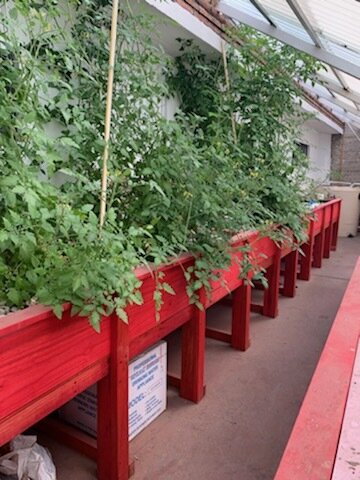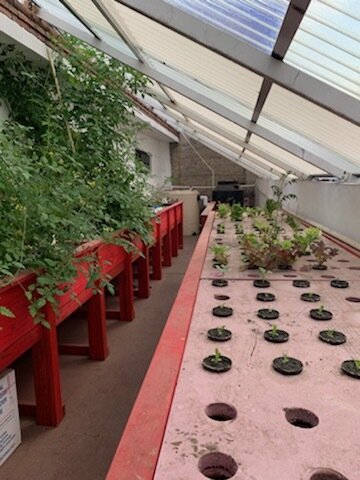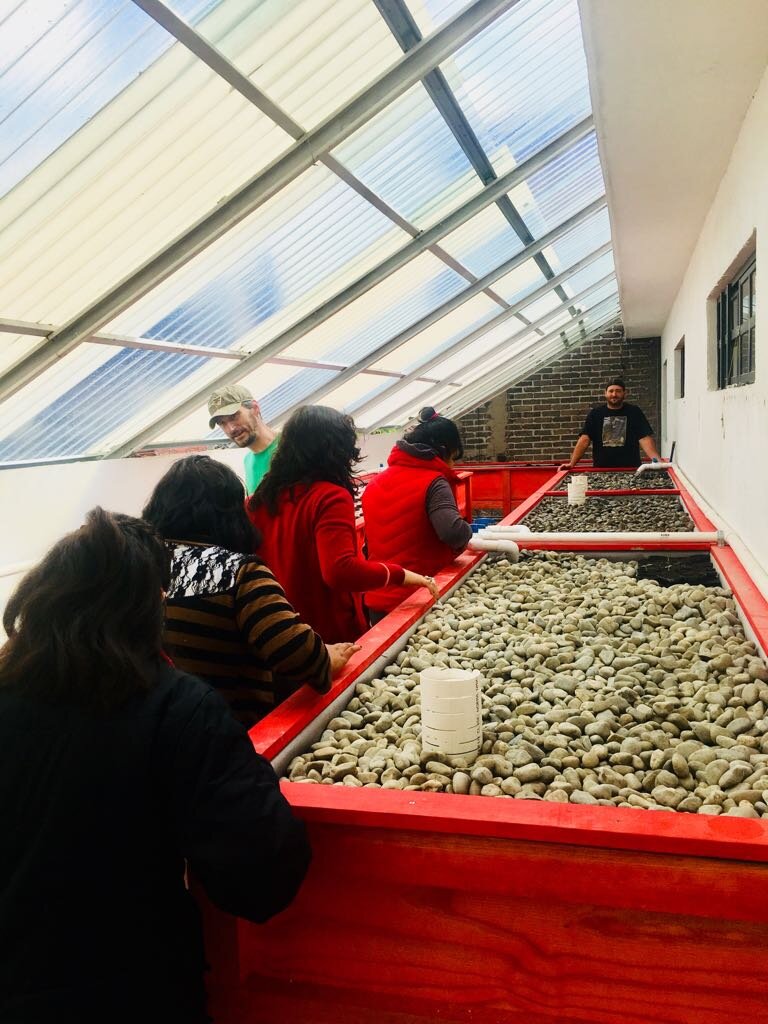Mexico City, Mexico
Location: Mexico City, Mexico
Date: June 2018
Project type: New Aquaponics System Construction
Partners: El Pozo De Vida
Size and Capacity
80’ x 40’ rooftop farm footprint
800 gallons: Recirculating Water
1/300 gallon: Plastic fish tank/sump
72 sq ft: Deep water culture
60 fish: Tilapia
150: Leafy plant capacity
Mexico statistics
U.S. Dept. of State: Tier 2 Watchlist
Total Population: 131,396,778
Victimization: Sex Trafficking + Exploitation, Labor Trafficking
Details
The common trafficking scenario in Mexico is dark and littered with complexities. Janice and Benny Yu (the founders and co directors of El Pozo de Vida) shared with us: a young girl, often experiencing poverty, is swooned by a handsome man with sweet charm and thoughtful gifts. He may befriend her family as well. This man becomes her boyfriend and tactfully lures her away from her hometown. He incurs expenses for phones and loans, and starts
to complain that she is not doing her part. It is very common for
the man to push drugs on the girl so that he has the power to feed
her addiction. He’ll even go as far as getting the girl pregnant and threatening to harm the child, or her family, as a tool for manipulation. Once the man has made the girl utterly powerless and dependent,
he begins to sell her for sex. This is one of the lighter histories that girls of the home have experienced. Countless young women who have
been a part of the El Pozo community have been beaten, stabbed, mutilated, and have even grown up locked in a cage.
Through collaboration with law enforcement, social workers, and therapists, El Pozo de Vida has a rehabilitation program for sex slave, and sex trafficking, victims. At El Pozo de Vida, they believe in the importance of holistic care, where mind, body, and soul are all considered in the effort to restore health, dignity, and purpose to victims of the sex slave trade.
In 2010 they opened their doors, and have since cared for 170 young victims. This aquaponics farm will serve as a sustainable food source, as well as a therapeutic activity for the girls of the home (aged 12 18).
There is much excitement about the opportunities the farm will create for the girls. In Janice’s words, “I feel like the aquaponics farm will help our girls develop the caring and nurturing they never received.” Janice is looking forward to using the farm as a tool to help the girls find hope and healing. “Nothing is wasted in an aquaponics system.” Even the waste from the fish is useful. These girls can understand
that the part of their life that they thought was a complete waste can, in time, bring help and nourishment to others. As they prune the branches, they’ll learn more about life’s healthy little prunings that help us grow. As they protect the plants from harmful predators, they will remember that they’re in a safe place too. As they control the environmental elements that come into the greenhouse, they will realize that they can’t isolate entirely, but they’ll learn how to safely let the world in.”
It takes a long time for trafficking victims to find empowerment and realize they actually have a voice in this world. There are major cognitive and neurological factors that take place during their healing process. Because of FFC supporters, El Pozo has a wonderful aquaponics tool to help in that process. As Janice put it so poignantly, “With that voice, they can cry out for justice; with that voice, they
can verbalize their dream; with that voice, they can help others. Their mourning will turn to dancing.”



